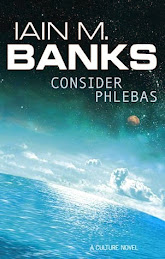While bookstores are struggling to compete with the likes of Amazon, book sales in general are in rude health, particularly speculative fiction. Fantasy, science fiction and horror have always had a large and loyal following, and there are no shortage of new writers out there to come up with fresh approaches to keep the speculative fiction market alive. Most new writers of sci-fi, fantasy and horror cut their teeth in the short story market. This too is in rude health, judging by the amount of magazines, anthologies and other markets advertised in Duotrope’s Digest, a website dedicated to listing all available markets for writers of fiction.
Literally hundreds of different magazines, anthologies and websites offer an avenue for writers to submit short fiction stories, and in particular speculative fiction, which is by far the largest market. Some of these magazines offer very little in payment, others advertise “pro rates,” so new writers face no shortage of potential markets. However, when you scrape beneath the surface a little, it soon becomes apparent that with a few rare exceptions, these short story markets are self-perpetuating. Many of these markets get almost as many submissions from writers as they do readers. In fact, other than a few long-standing and notable exceptions, the majority of the reading audience to these anthologies and magazines are writers themselves. It’s a case of writers writing to be read by other writers.
Very few general readers buy these short story publications, and even worse for a writer’s perspective is that very few publishers take any interest in them either. No matter how much of a reputation a writer makes in the short story market, they gain very little attention from mainstream publishers and readers. Few people in the average bookstore would have heard of the likes of Jason Sanford or Alison Littlewood, but they are two of the most exciting writers around in the science fiction and dark fantasy genres today. Yet, like other short story writers, their work goes very much unnoticed.
Publishers are of course interested in turning a profit so concentrate their abilities on promoting novels, as that’s where the money is. Very rarely will a mainstream publisher release a new author’s short story collection - arguing there’s just no money in it because people don’t buy short story collections anymore. But why? In today’s age of the e-book reader and iPad, and with an ever-busier population, with an ever-shortening attention span, the short story should be the ideal medium. As Hemingway suggested, a short story is written for consumption in one sitting. What could be better than reading a story when commuting to work in the morning, another on the way home, or rounding the day off by reading one in your comfiest reading seat? Yet few people do, preferring instead to steadily leaf through a novel.
It wasn’t always this way. Many of the greatest literature figures, particularly in science fiction, fantasy and horror, made their name writing short stories. Edgar Allan Poe only ever wrote one novel and is best remembered for his shorts. H P Lovecraft churned out hundreds of short stories, while Arthur C Clark, Isaac Asimov, Harlan Ellison, Robert A Heinlein and Philip K Dick, all made their names writing shorts. Many big name writers still regularly write short stories too; Stephen King and Neil Gaiman to name but two. But with such a limited audience, it begs the question as to why they bother. Well it’s certainly not for the money. Even the highest paid short fiction markets rarely pay above 7 cents per word. Sure big names like Stephen King and Neil Gaiman will probably attract a bigger audience for the magazines and probably get a bigger payment too, but it won’t be much, certainly not on the same scale as their novels and other writing earns them.
The reason is probably something to do with the art behind short story writing. The short story is perhaps the purest form of storytelling. Unlike a novel, where an author gets the chance to write page after page of verbose description and characterization, a short story requires a writer to cut things down and include only what matters to the story. The plot, narrative, characterization and description need to provide just enough detail to immerse the reader and serve the story. For this reason, some of the greatest works of fiction are written in the short form. So, next time you are browsing your local bookstore, why not pay a visit to the shelves containing the short story magazines and anthologies. You may find you are in for a pleasant surprise.
- Isabella Woods -
12 hours ago





No comments:
Post a Comment